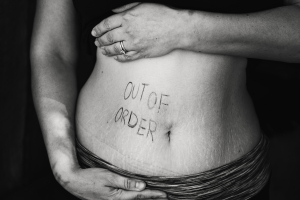
Photo by Kat Smith from Pexels
Polycystic Ovarian Disease or PCOD affects almost 5-10% of women between 18-45 years. Also known as Polycystic Ovarian Syndrome or PCOS, it is a hormonal imbalance in females of childbearing age. In PCOD, you have more than one small cyst in your ovaries. These cysts enlarge your ovaries which in turn leads to increased production of androgen and estrogen. This imbalance in the production of hormones in the body leads to many physical manifestations of symptoms which we will discuss shortly.
It has become one of the major ailments that affect women of reproductive age. PCOD tends to affect early on and is accompanied by several symptoms, including irregular periods, lack of ovulation, abnormal weight gain, acne, excess body hair, and difficulty getting pregnant. Suppose you don’t start treatment of PCOD early. In that case, there might be further health complications, including increased blood cholesterol level, diabetes, heart issues, and obese body weight.
What causes PCOD?
The main cause of PCOD is still unknown. However, certain factors have been associated with PCOD. If you have a family history of PCOD, you might be genetically vulnerable to it.
As high as 70% of PCOD cases have been linked with peripheral insulin resistance. Insulin is a type of hormone produced in the pancreas. This hormone breaks down the sugar entering our body to utilize it in various bodily functions. Due to insulin resistance, the body cannot use the insulin produced; the pancreas makes more insulin than the body requires.
Other contributors to PCOD include an unhealthy lifestyle and/or pollution.
To successfully identify PCOD and consequently get expert medical treatment for the same, you need to know the different symptoms. Knowing the signs and checking if you have one or more of them is the first step towards treatment.
Here are the symptoms to check for:
- Amenorrhea – Simply put, this is the medical term for irregular periods. You may have periods once every 2-3 months. If it is a one-time occurrence, then it should be alright. However, if it is a regular occurrence, you might want to book an appointment with your medical doctor sooner rather than later. The irregular periods are due to a delay in the maturation of the egg.
- Menorrhagia – This complex term is what doctors refer to as heavy bleeding during periods. This excess of bleeding is linked with the reduced level of progesterone in the blood. In this case, your menstrual bleeding might last for seven days or longer.
- Hirsutism – PCOD is characterized by an increase in the level of androgen in the body. Since androgen is the male sex hormone, an increase causes an excess of hair in the body and face. This is medically known as hirsutism. This hormonal imbalance also causes hair thinning and loss, ultimately leading to male pattern baldness.
- Difficulty to conceive – If you are trying to be pregnant and have any of these symptoms, ensure that you immediately book an appointment with your medical doctor. In PCOD, due to hormonal imbalance, the follicles might not mature or release eggs. This results in failed or at least delayed ovulation. Many women are diagnosed with PCOD when they go to a doctor to investigate why they face difficulty getting pregnant.
- Acanthosis nigricans – This is a medical term for having dark skin patches or pigmentation around the body areas where creases are in the skin. Examples include on the neck, under the breast, and in the groin. This is also a sign of insulin resistance.
- Weight gain – As high as around 80% of women suffering from PCOD are obese. The fat accumulation is more around the waist area. You will find that you cannot lose weight or are gaining weight unnecessarily despite your best efforts.
- Mood swings & Acne – If you feel light as air one minute and are inexplicably angry the next, don’t brush it off or take it lightly. It might be your body’s way of alerting you of a possible issue. The bursting of the odd acne on your skin when it is least expected does not help your mood either.
Diagnosis
If you experience any of the above symptoms, ensure that you visit your local healthcare provider. Depending on the severity of your symptoms, they will conduct an exam of your pelvis, both internal and external. They can recommend an ultrasound that will show the ovary and show cysts if there are any.
Your healthcare provider will then recommend blood tests to check the level of different hormones in the blood. They can also check the levels of blood glucose, cholesterol, and triglycerides in the body.
Based on their findings, your healthcare provider might recommend you to an endocrinologist, a gynecologist, or both.
Conclusion
In conclusion, it is safe to say that the early diagnosis of PCOD is the key. The more you procrastinate, the more severe the symptoms become. An early diagnosis followed by medication and changes in diet and lifestyle goes a long way in treating PCOD.
Reference links:
https://www.msdmanuals.com/en-in/professional/gynecology-and-obstetrics/menstrual-abnormalities/introduction-to-menstrual-abnormalities
https://www.ncbi.nlm.nih.gov/pmc/articles/PMC2856356/
https://www.ncbi.nlm.nih.gov/books/NBK431057/



